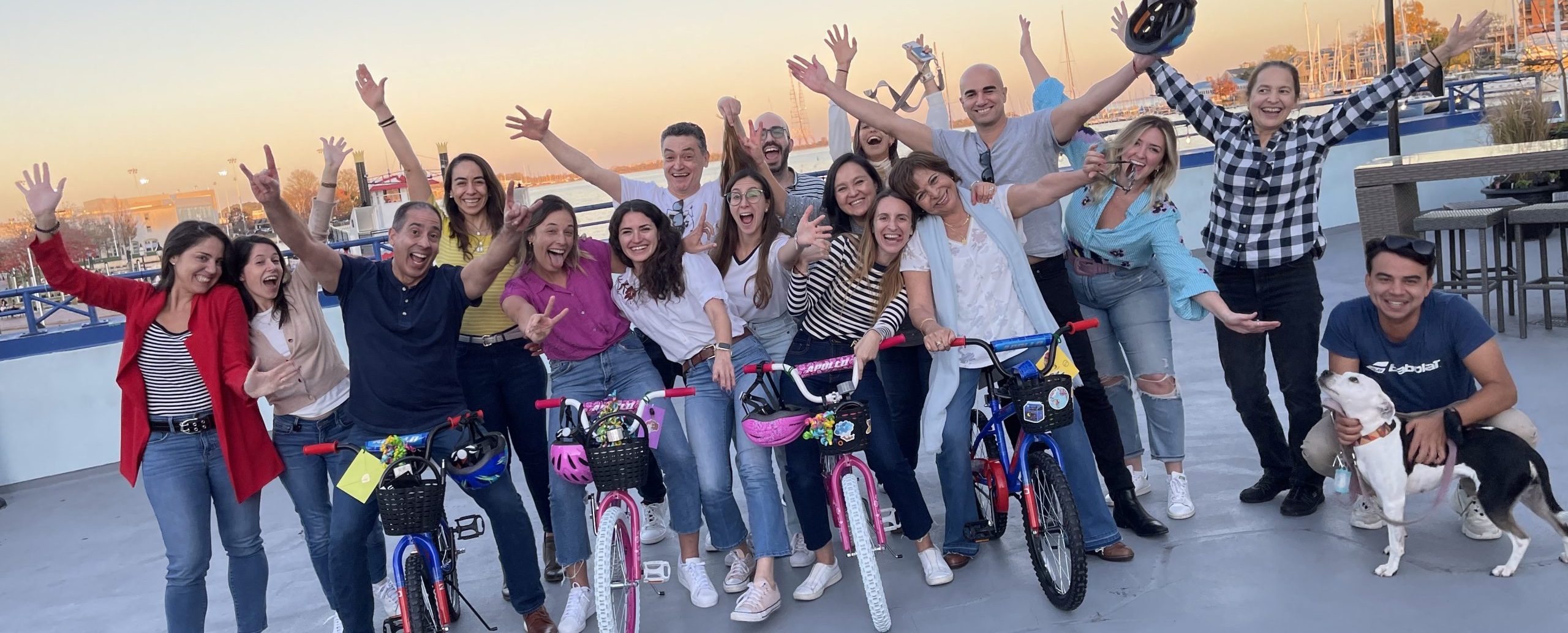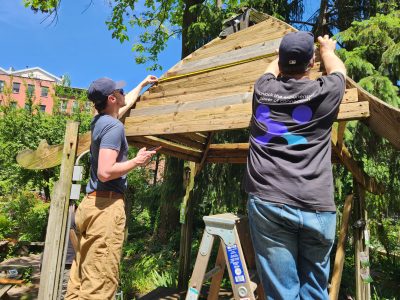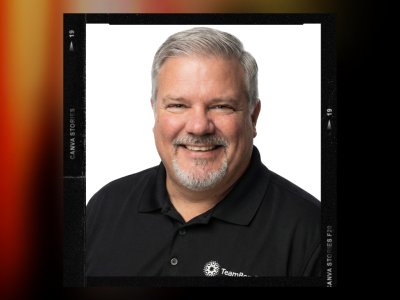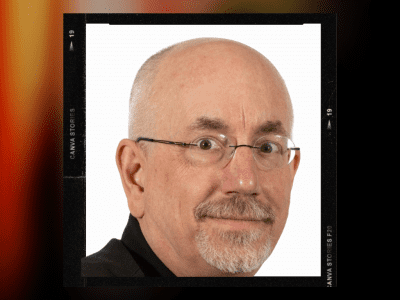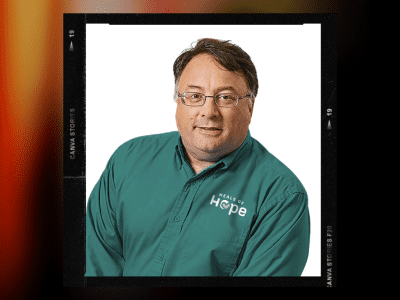STRONG TEAMS DON’T HAPPEN BY CHANCE 
Coaching up: Setting your employees up for success
w/Jackie Hague
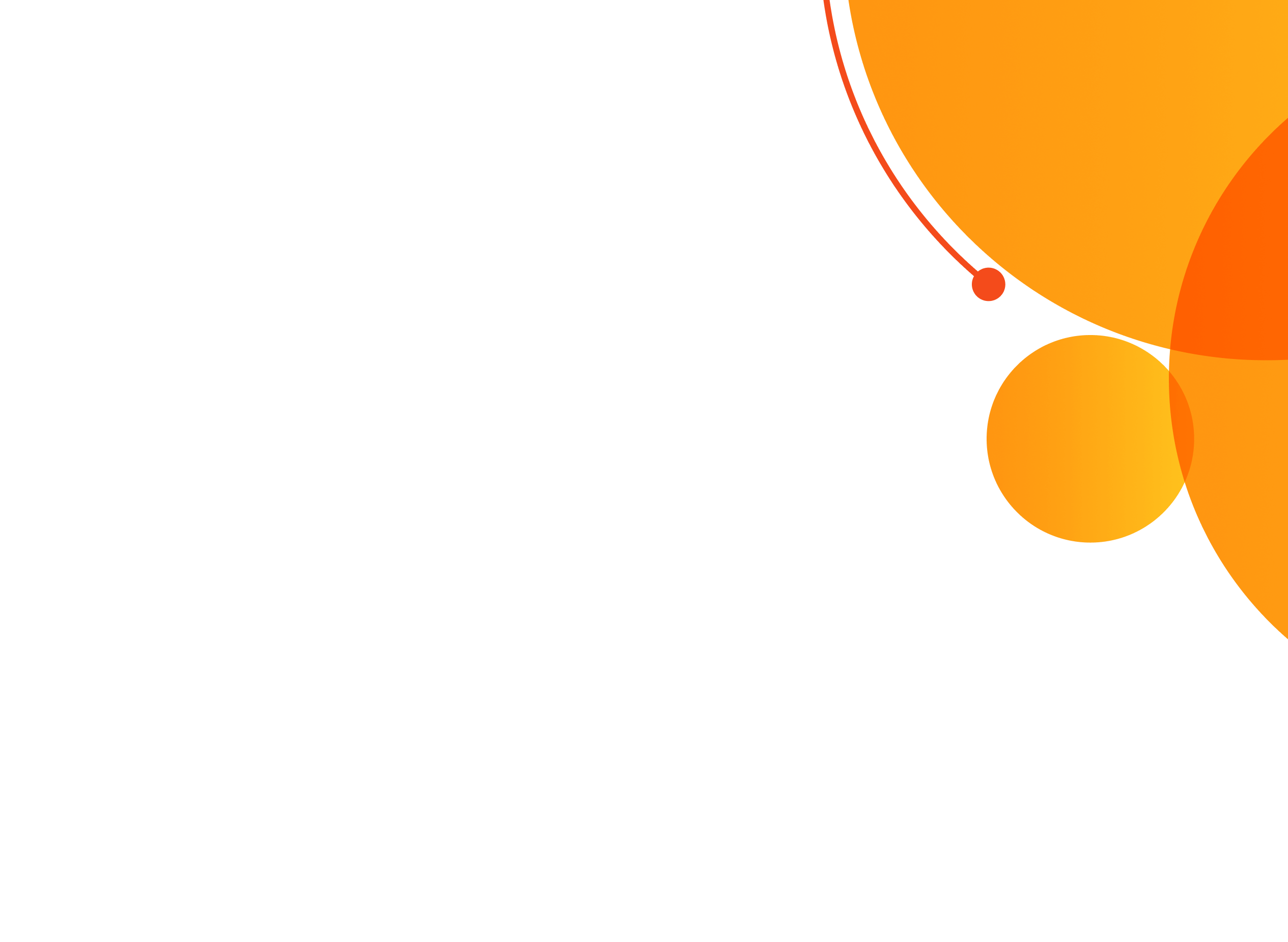
Use the buttons above to listen now.
Transcript - Coaching up: Setting your employees up for success
Rich: On this episode of team building saves the world.
Jackie: But if you’re talking about, is development just for the chosen ones. Absolutely not. It’s more about finding the balance in the room to get the best out of all the players in the game.
Rich: Is that easier live than it is virtually?
Jackie: Is there value in developing internal talent? Um, yeah, I certainly hope so. It’s kind of like my career, my chosen career path.
Rich: Hello team. It’s me, your old friend, Rich Rininsland host of team building saves the world. The show where I speak to the leaders and innovators and employee wellness and corporate culture on how it reflects in the world of today. And today we’re discussing talent development with the director of enterprise leadership development for CVS health, Jackie Hague
Rich: But first, I need to share some love with my supporters at TeamBonding if your team is ready to experience teamwork through the power of play and visit teambonding.com to learn more. Now team, join me, welcoming a woman whose entire career is built around the strategy and implementation of high potential leadership development Jackie Hague.
Rich: Jackie. Hey. Hello, Jackie.
Rich: thanks so much for coming on board. I have managed to keep just a small group of people trapped under my desk their whole job is applaud to you.
Rich: So, uh, Jackie, let’s start off nice and simple. I always aim for the lowest and then build up high. So can we explain to all of my team out there? What is team development, leadership development, and how did you get started in this career.
Jackie: Sure. So simply put, I have the coolest job in the company. I am tasked with accelerating the advancement of the top talent of the organization, which we achieved by assembling cohorts of high potential leaders across all of our business lines and all levels from emerging through executive.
Jackie: And we put them through a series of shared experiences that lead to growth. Um, the way that I actually came into that role was sort of, I’ve been with CVS health for 15 years and I’ve held a number of different roles inside of the business. So I didn’t actually start as an HR professional, but rather I was selected for a high-potential rotational program.
Jackie: Um, that took me through a number of different functions across the business. And ultimately I landed in HR by virtue of a stretch assignment I was working on at the time on culture building, um, which involved a lot of team building. And I had started to fancy myself, a natural people person. And so it seems like a natural fit.
Jackie: And when I was graduating from the program to sort of take over ownership of the portfolio and I have been there ever since.
Rich: So you yourself went through this talent development process.
Jackie: Yes.
Rich: Okay.
Jackie: I lived that life yes.
Rich: So everything you said sounds not too. I’m not disparaging you anyway, but it does sound like it was something that came right off of a cue card.
Rich: Um, what is talent development? I mean, how does it work?
Jackie: What is talent development and how does it work? I would think that, you know, talent development is docked into a talent strategy. So, you know, you set direction for the organization. We’ve got our big goals set out there that we need to achieve. And talent development is the thing that sort of unlocks the potential of the leaders that are going to get it done.
Jackie: Right. So that could be. You know, a combination of our learning and development activities, right? Making sure that people are skilled up to be able to do the skills that they need to do to, uh, to deliver the results that we need them to deliver. Then they’re sort of like career growth and career progression.
Jackie: So those soft skills, you know, how do you know how that you’re a good leader or how do you know that you have influence or how do you know you know that you’re collaborating or delegating or whatever, those things, those that help you to be successful, um, in teams and then, um, in leadership roles. And then when you’ve really sort of nailed it, right, you’ve mastered a craft,
Jackie: you have demonstrated an ability to deliver results over time. And then we say, Ooh, you like, we really want to put you through it. Right. We’re going to put you in these accelerated development tracks. Where you’re outside your comfort zone, you know, where we’re connecting you across the organization to, you know, people that we think you need to know, not just so that you can do your job well in this moment, but so that you can advance our strategy.
Jackie: Right. So how are we thinking ahead about what’s coming next and how are we building the capabilities that we’re going to need our leaders to, to be able to demonstrate in the future?
Rich: So is this something you would say is for the company itself or is it for the betterment of the employees?
Jackie: I would say both, right?
Jackie: Like great talent makes for a great business results. And I’d say that’s a, that’s a win-win.
Rich: But again, let us start us off in the very beginning. Is this a new hire practice? Like let’s start them right away or is it something that once they’ve developed a certain level within the company, then we can start looking at them and giving them these skills that they need to succeed.
Jackie: Well, philosophically, you should always be developing, right. And that’s something that no one owns for you. That’s something that you have to sort of own for yourself. Right. And so you should always be thinking about where am I strong and how am I leveraging my super powers and where do I have opportunity to grow and stretch?
Jackie: And what are the things that I should be thinking about, you know, that are helping me to get there. So, um, I mean the piece that I have the most expertise in would be high potential development, which just by design is not something that you would necessarily, you know, think of when you’re thinking about someone brand new to a role, right.
Jackie: Or someone who’s just stepping into a new organization or a new function, because you have to be able to develop, uh, demonstrate that capability and that capacity to do more before you can be deemed. Right. And that’s something that there’s a lot of conversation about all the time. Oh, well, what does that look like?
Jackie: Right? What does it, you know, a high potential so-and-so look like here, there, or wherever, but I would just say just as a, as a person who’s passionate about growing, it’s important to understand, you know, What does success look like in this situation? You know, where am I already successful and how do I want to lever that up?
Jackie: Where do I have opportunity to be even more effective? And, and how am I going to grow there? Sometimes that’s going to be through formal development channels. Sometimes that’s going to be through experiences, which I think are the most effective. And sometimes that’s going to be through, you know, the people, you know, and how they’re helping you sort of navigate your career.
Rich: How does this work then? Like, what are some of the methods that are used to help with development?
Jackie: Well there’s any number of levers that you might pull, some might consult with assessments, right? So you can start by doing some sort of competency of evaluation, whether it be an assessment that you take for yourself.
Jackie: And then you sort of bump that up against feedback that you receive from your leader or your cross-functional partners, or your direct reports whatever that might be, if you have those. So that’s one tool that we use. Coaching it is a great way to develop yourself as a talent, right? So do you have, whether that be a peer coach or someone that is a leader that you trust or someone in your external network that can give you that perspective?
Jackie: That’s one way that you can develop talent. Having a tight feedback loop is important when you’re thinking about developing talent. So how are you getting feedback on the way that you’re showing up, whether it be in terms of your day-to-day role and function, or, you know, how you’re just sort of walking down the halls, right?
Jackie: The, how you get things done is every bit as important as the what. And I think it’s important. Cause I mean, nothing that we’re going to talk about in this space is rocket science, right? Like there’s nothing that I could say to you or uh, anyone that’s going to be like, oh wow, what a novel things she’s just said, but I think what’s important to acknowledge is that in the moments that matter, are you giving yourself credit for positive intent or are you, you know, reflecting on that demonstrated behavior so that you can adjust your approach where it’s necessary. And that level of self-awareness is something that I think is really important to being successful and not just in, in career, but in life as well.
Rich: Okay. So as an actor, it would be more of like being able to take the note.
Jackie: Yes. Yes. Being able to take the note yes.
Rich: Okay, excellent. Excellent. As let’s say that I’m a new employee and I’m coming in, or I’ve been with the company for a year, I am now looking for knowing that this job is going to be the one that’s going to be my career that I’m going to take off from here, right from jump what should I be looking for with this new company to know that they’re going to help me to reach my success.
Jackie: At the risk of sounding earthy. I’m a very big advocate for vibe checkings. So like reading your own energy and being, you know, honest with yourself is super important. If you’re waking up in the morning and you’re feeling a certain way about logging on to work, then you may have found yourself in their wrong career, right? If you are waking up in the morning and you just cannot wait to walk through those doors and hit the ground running, then you’re probably in the right place. And I’m sure there’s, you know, you’ve probably seen there’s any number of different sort of evaluation frameworks that you could look at, but basically what you want to think about is your must haves and your needs to haves right?
Jackie: So what are the things that must be true for this role or this organization to be a fit for me? And then what are the things that are sort of nice to have, or that are deeply motivating? You know, when I think about work and if you take the time to sort of go through those self-reflection activities you can then bump that up against where you are, whether it be the workplace that you’ve chosen, the role that you’ve chosen, the team that you’ve chosen, whatever it is and say, is this a fit or is it not? And then take the appropriate next steps from there.
Rich: Because we’re still in the midst of this, despite the pandemic, we’re still in the midst of what has been, come to be labeled the great resignation. I mean, we’ve got, I was reading a Forbes article as of last December. There’s still like 3 million jobs across all markets throughout the U S that haven’t been filled. Is this a method and how can this, if it is, can it be used to make sure that people want to stay in the job and not look elsewhere?
Jackie: Well, sure. I think, you know, the most important thing for us to think about as leaders is sort of making sure that our team, especially our high performing high potential colleagues, the ones that we really want to invest in and routine over time that they see the path for themselves. And sometimes that’s not always clear. Sometimes you don’t know what you want to be when you grow up. Sometimes you’re not sure what your superpowers are, and sometimes you’re not sure where you’re developing. Right. And so being able to have those types of open conversations with the people that you work with, can be super helpful to not only mapping out your next step, having an intentional plan about how you’re going to get where to, where you need to go, but just to be able to, you know, see the possibilities, right? Like, so if I was just 10% more effective in this one way, how would that change the whole trajectory of my career? And being able to just have those open conversations, I think can unlock lots of possibilities, right? That you might not have contemplated on your own, but if you’re just sort of sitting there floating in outer space, like not certain of how you’re being perceived or how you’re being talked about in the rooms you’re not in, you’re not sure of what possibilities are open to you, or, you know, what things that you might be good at that you might not have contemplated then you know, you are more likely to pick up that call when the recruiter from an external organization calls you up. Right. Because if you’re not docked into a plan, you don’t necessarily feel valued when you’re not having those types of conversations. And so I think it’s important to make that a part of regular practice.
Rich: Well, that does bring up a good question. You’re talking about those high performing individuals that the company itself wants to grow. What about everybody else? I mean, does this mean we just keep certain people at certain levels or are there ways to actually help them feel like they can achieve higher potential as well?
Rich: And should we be? Cause I imagine this costs money to actually do. So, is the company wasting time keeping the non highest performing people from reaching a higher potential.
Jackie: Well, I think there’s a difference between the non highest performing people and the steady Eddie’s of the world, but people that are well-placed, well-positioned passionate about whatever that role is and do not aspire to be in the C-suite someday.
Jackie: There is absolutely nothing wrong with that. If that is a mutually beneficial partnership. That’s much different than someone who is like, you know, not performing or not showing up, you know, in the way that we would want them to, from a, how we do things perspective. I mean, that’s something that needs to be managed, right?
Jackie: Because if you, as a leader are, uh, how do I say. Tolerating bad behavior, right? Then that’s sending a message to the others on the team that that’s, you know, that’s acceptable and that causes increased disengagement. But if you’re talking about is development just for the chosen ones. Absolutely not.
Jackie: You’re developing in every moment of every day. And I would say that it’s a disservice to yourself to limit yourself to formal channels. So I personally, as a graduate of a rotational journey, am a big fan of uncomfortable experiences. And some of the most rewarding opportunities that I’ve had were the ones that I was like, no way. Absolutely not. I’m not doing that. That is scary. I don’t have interest in it. I’m not going to do well there. I don’t want to come to work and do that every day. And they said, you know what? They said do it just try. And so I did, and those were those years where I looked down the mountain and I was like, wow, I can’t even believe it.
Jackie: So I walked into the office every day, feeling like I was going to burst into tears at any moment, but I would not have traded those years for anything because they made me fearless right. They made it so that it didn’t matter where the next turn of my career went, because I knew I was capable of getting in there, figuring it out, making connections and making an impact.
Jackie: And that’s something that serves me at work at home, wherever. Right. And so. No development is for everybody. And I would challenge everyone to find it in the moments. Right. It’s not necessarily in the job board or in the learning center or the library or wherever it is that you go to develop yourself.
Jackie: There’s lots of resources out there for sure. And you should leverage them. But those informal development opportunities or those mentors that are so important to our growth and to our success, that’s where the magic happens, in my opinion.
Rich: All right. Speaking of magic, Jackie, hang on for one second. For me, if you can, I just need to take a brief step away and they need to tell all my team about a company that I find magical TeamBonding.
Rich: TeamBonding was founded over 20 years ago with one simple question. How can employees have a great time while fostering strong, authentic bonds between people who work together? They’ve created a catalog of innovative events using the power of play as a learning tool and tapping into the correlation of work and play. From scavenger hunts to jeopardy and so much more the team bonding of activities whether a live virtual or hybrid maximize the impact of team building with an accent on fun.
Rich: So visit teambonding.com to schedule your event now. TeamBonding when you want seriously fun results. And we are back with Jackie Hague talking about talent development. So Jackie, as we all know, a couple of years ago, uh, the world changed and suddenly people weren’t able to come into the office and have that face-to-face time.
Rich: How do we continue to keep people growing virtually?
Jackie: All right. So this was like a big deal in my space, as I’m sure you can imagine. So pre pandemic a lot of the work that I was leaving leading was highly experiential in person. Every single session was being custom designed with lots of bells and whistles.
Jackie: And so when the pandemic hit, we had actually just kicked off some new cohorts of high potential leaders that had just met for the first time in person. We had gotten them all jazzed up about, you know, this roadmap that they could anticipate. And then wouldn’t, you know, cue global pandemic and the entire portfolio had to rapidly be converted to virtual.
Jackie: And it could have been a moment where we said, shouldn’t we pause until we can get back to the way we’ve always done things. Wouldn’t that be better? I said, no, of course, we’re not going to pause. We’re going to figure this out. And we tried and failed magnificently. I mean, somethings are just not meant for zoom or WebEx and some things we found actually work better.
Jackie: And so as we return to a hybrid environment, I think that we’re really excited to be able to deliver development and engagement opportunities in the most efficient and effective way possible that allows people, the flexibility to get their work done and to develop themselves in the way that is most meaningful for them without always having to be prioritizing a full four days to a week for travel and you know, all of those things.
Jackie: So it helps us to manage costs. It helps us to manage time and it helps us to meet leaders where they are, right. So that they can receive development opportunities that are built for them, not built for everyone, just by virtue of sort of being flagged for this particular development opportunity.
Rich: Well, what kind of methodology do you use, especially in a virtual world?
Jackie: Methodology for developing people?
Rich: Yeah.
Rich: I mean, the measurement will always be the same. It’s the output basically coming from the employee. But how do you, then you picked your person that you’re going to aim for leadership. You’ve had that conversation. It’s something that they want. What are the first steps? How do you then take them by the hand and lead them on the way when you’re basically a three by four square on a screen?
Jackie: Hmm.
Jackie: So the first thing, first things first, right? You identify what the learning objectives are, right? So you say, here are the strengths and superpowers. Here’s the why you’re here. And then here are the ways that, you know, we’re going to be able to serve up opportunities to grow. So some of that is based on where you’re at in this moment in time.
Jackie: And some of it is based on your own personal development opportunities. Right. So the path to the C-suite is not a linear one. We all have our different, you know, experiences along the way. And so it’s important to really understand what is it that we’re actually trying to drive here, because we’re not going to put you through development for the sake of development, right?
Jackie: The second, then you can sort of build out a roadmap. So I will say that things that are typically important to leaders at any level is sort of education. So what is it that you need to know about the business that you’re leading in order to be effective? So, and that changes all the time, doesn’t it? So we don’t typically rely on formal coursework.
Jackie: We like to engage with leaders in a particular organization to say, you know, what is most important to the success of your business line at this moment in time? What is it that you would have your leaders do, you know, to be successful? And so we sort of ground sessions on that. We also offer customized leadership development.
Jackie: Right? So if you’re someone who needs help with your executive presence or grabby tops or influence, or delegation or negotiation, whatever, we got something for ya, you know? And so whether that be coursework or a coach, or, you know, getting some feedback from the people that you work with. I mean, those are all things that are always available to you.
Jackie: And then most importantly are what I think is the special sauce to career development is creating meaningful connections with a deep cross functional network. And so. What experiences can we serve up to you? That puts you in a situation that promotes vulnerability and transparency and candor so that you can capitalize on those little moments of lightning in a bottle.
Jackie: And then you can build on those relationships over time so that when there is a situation, whether it be while you’re in uh, a development track or whether you’re just finding yourself at work one day and you have a business problem, you probably know someone that you can pick up the phone and reach out to who, even if they’re not the person that’s going to help you solve it, they know the person who is, and so creating those connections across an organization and even with your external peers is really important for when you need that guidance or that sounding board.
Jackie: And so cue any, which one of those pillars that I just walked through, you can do a business immersion virtually. You can also do a business immersion walking through the offices of Amazon or Google, right? Like there’s a couple of different ways you can deliver anything. I can do executive presence, coaching virtually.
Jackie: I can also do it standing in front of a podium. It’s what is most meaningful to the participant and what is this moment in time calling for? Right. And so we can serve pretty much anything up anyway. Well, you know what you can’t replicate, you can’t replicate that thing of like the thing that happens when you’re sitting at a table with someone and someone’s talking in front of the room and you’re like, Ooh, like whisper to them across the table.
Jackie: Or like that walking from the table to the lunch room between sessions or the thing that happens when you share a meal with someone like in person, like pass the salt type, sharing a meal with someone and those connections I’m very much looking forward to getting back to, you know, because it’ll, it’s gonna feel even more meaningful than it did before.
Rich: So it seems to be a lot more one on one rather than group thinking is what you’re saying.
Jackie: It depends. I’m actually, I would say no, I would say we set up, you set up a structure that facilitates connections within the group, right? So in some cases, do you have a one-on-one coaching session or a one-on-one interaction?
Jackie: Sure. Maybe, but a lot of it also is saying, Hey, you group of 10 people who are all high potential mid-level leaders, sitting across, you know, XYZ industry like have you thought about knowing each other? Cause you might have some stuff to talk about. So a lot of it is about thinking creatively about how we set people up to have an experience that will lead to their growth as well.
Rich: But if you’re talking to the group of 10. How do you handle the differences in those people? Because right now we’re looking at a marketplace that has five different generations currently working within it. Plus you’ve got your normal introvert versus extroverts. I mean, how, you know, is it always the extrovert because this is what I’m always afraid of people finding at my events.
Rich: The extroverts always seem to get the most attention. Is an introvert to worry about that when it comes to leadership development?
Jackie: Nah, I think that diversity brings strengths to a team. Right. And I also find that in many cases, when you put leaders together, the group will sort it out. So when I’m facilitating a session, I do not see it as my responsibility to sort of police the room.
Jackie: I think that it’s much more fascinating to queue up a question or queue up an activity or queue up an experience, and then watch what people do. And then we act as a mirror and say, Hey. I observed this and I observed that. Does that make sense to you? Is that how you want to show up? If so. Cool, great more power to you.
Jackie: If not. You know, what might you do differently next time to provide perhaps a quieter voice in the room, an opportunity to speak? Or if you notice someone that hasn’t participated, do you perhaps low key ask them if there’s something that is on their mind that they’d like to contribute? You know, I think observing is a very powerful tool as well.
Jackie: And there’s no one, right? Like any personality assessment would, would tell you that there’s no one right style. It’s more about finding the balance in the room to get the best out of all the players in the game.
Rich: Is that easier live than it is virtually?
Jackie: Nope.
Rich: Okay. I’m going to kind of bring things to a downer here for a quick second, because I have to ask the question when I came up, as I tell everybody, at some point during the podcast, I’m a professional actor writer, director.
Rich: I’m I’m an artist, but that means that I spent most of my life working in the corporate sector so that I could afford my career choices. Why not just hire someone new? Why not just find the leader out there already? Why raise up from within, is it easier to bring on a new person? Is it more cost effective?
Jackie: I mean, probably not.
Jackie: I certainly don’t know all of the math associated with onboarding a new employee, but I do know my attrition is extremely expensive. Right. And so I’d say, is there value in developing internal talent? Um, yeah, I certainly hope so. It’s kind of like my career, my chosen career path. You know, institutional knowledge is extremely valuable, but I think what’s even more valuable is mindset.
Jackie: Right? So there’s a balance that needs to be struck here. It depends on what industry you’re talking about. It just depends on the culture of your organization. It depends on what needs to be done right now. Right. Are you building out a new sector of your business that requires a skillset that does not currently exist in your current org?
Jackie: In which case? Yeah, you’ve got to get that fresh blood in here, but if we’re talking about, you know, leading deeply, matrix complex sort of teams and challenges. Do you need the people that are living and breathing it and understand, and they show up the right way and they set the right example and they develop those behind them and they are critical to your success.
Jackie: Yeah. So I think it’s a yes and there’s value in both approaches. It just is a matter of what you’re trying to accomplish in that moment, but as a colleague at an organization, you know, when you are engaged and passionate and bought into the vision and an active, positive participant in the culture of the organization, do you want to feel like that matters?
Jackie: Do you want to feel like that’s valued? Yeah. Like totally. Is talent development one of the ways that you can achieve that? Absolutely. But just in terms of how we treat each other just as colleagues, like not as a leader, not as an HR person or a talent development professional. I think that we all have a responsibility there to how we show up every day and how we support each other in the moments that matter.
Jackie: Because really, I think what every human being wants to feel like in any situation personally or professionally, is like, I’ve got you, right? Like I’ve got you and you’ve got me. And if that means me helping you get to the stage in your career. Cool. How can I tap in, you know, if that means having a conversation with you about why you’re not a fit for this organization.
Jackie: Cool. Tap me in. And the point is how are you building the connections that foster that level of trust so that you can be a positive impact every step of the way.
Rich: All right. So the question that all of that seems to be leading to is what happens when they’ve gone as high as they can go. Not everybody can be CEO.
Rich: You can’t train someone to be a CEO because they’ve already got that job. So what do you do for that person who plateaus? I mean, I was reading an article where they start talking about, at some point the plateau person starts to diminish again, almost like an S curve. Like they start going back down again because the there’s always the question of what’s next that’s been coming up in their mind.
Jackie: Well, I mean again, depending on the situation that person’s unique, career aspirations, et cetera, a couple of things that you might contemplate is lateral moves are super effective for staying engaged, learning a new area of the business, learning new subject matter, getting up to speed with a new leader or, you know, new team members.
Jackie: And so I think that’s a super savvy way to continue to grow and advance in your career even if it’s not about the level. I think gone are the days, quite frankly, where we should be thinking about our careers in a vertical manner. I mean, there’s just so much out there. The world is so big and listen, I’m an achiever.
Jackie: Like I like winning. I like growing. I always aspire to be developing towards the next thing, but I also see so much value in moving side to side, back to go forward. I mean, those experiences are equally valuable in the long game and should not be understated.
Rich: Is this something that if I were this individual, I should have been trying to do all along the way, not learn everything about my one department, but try to see what else is out there?
Jackie: I just think like the more expansive your perspectives, the better you’re going to be wherever you sit. Right? So even if you are sitting in a, in a role right now and you’re like, Hmm, there’s no room for me to go up and you know what, maybe I don’t want to go up, but I’m going to be even more effective in this role if I educate myself left and right if I better understand the people that sit in the level behind me and to the left and right of them. I mean, that is just going to make you more well-rounded even your cross-functional partners, right? Who are the people that you have to work with and what do you know about what’s important to them?
Jackie: That’s going to help you be more effective and that can, you know, when the work becomes on autopilot, if you will, those are ways that you can continue to develop and grow within the scope of your own role.
Rich: What about those people? What about the steady, the steady Freddy’s. What about those who are just happy being where they are?
Jackie: Good for them! Who does aspire to be feeling good feeling well placed. Every business needs those steady Eddie’s or Freddy’s, or Eddie’s like to be sitting there just doing the good work every day. Now if steady Fred is a blocker to the team, that’s a different conversation. If steady Fred is just like disengaged and it’s like, this is easy for me, but I’m not really showing up with a good attitude.
Jackie: That’s a different conversation. But if that person is showing up doing great work every day, and that is a mutually beneficial partnership, then I say, you know, continue to leverage that person’s strengths use them you know, to the full depth and breadth of their capacity, right? Like, are they training the others?
Jackie: Are they showing them the way? Are they innovating? Right. Are you pulling them into the table when there’s advancement or brainstorming to be done? You know, how are you just leveraging that expertise that is only deepening over time. So would then say that all it comes down to a talent strategy as well, too.
Jackie: So like philosophically is your organization. Okay. With that? Right. Like, are you okay with talent sitting in one level and just sort of staying there for the duration? I mean, that could vary based on the culture of your organization as well.
Rich: Would you say this is just a simple matter of communication. Keeping the lines open. At least that’s what these episodes you’re teaching me because no matter what we’re tackling, it always comes down to, well, you should just talk to the person.
Jackie: And like it’s steady Eddy happy? Like, I don’t know, like if they are, they can go great. That’s cool. But you know, if, if maybe they would be open to possibilities, you know, are they being considered or if not, why aren’t they being considered?
Jackie: I mean, I think that, you know, Uh, a culture of radical candor is something that I think is aspirational both personally and professionally. So are we saying the things that need to be said in the situations where they need to be said are, where are we making assumptions about what people are thinking and what they’re doing and why they’re doing it?
Jackie: Right. Because I think that what we find is when you just sort of open the door, people will walk through it and they will tell you what’s on their mind. And then at least you’re having an honest conversation about it, right? At least now you’re not spinning your tires solutioning for things that aren’t even the real problem.
Jackie: We all move fast. Don’t we, we all have big goals and big deliverables. And I think it is important, especially when you’re in roles where you impact others, which is kind of like all the roles, right. Where, you know, we’re taking a moment to stop and pause and check in with the people that matter most to us so that we can be showing up in the way that is most effective.
Rich: Okay. Now let’s take a look at it from an employee’s point of view. Let us say that as an example, I’m an employee, but I have self doubt. How do I know before I even start reaching out to see if there are methods of improving myself within the company? How do I know I’m strong talent?
Rich: What does that even look?
Jackie: I would say ask right. Asking for feedback is very powerful. So what feedback are you receiving from your leader? What feedback are you receiving from the people that you work closely with, again, not making assumptions about how you’re showing up. I would ask like, you know, questions, like what I was saying earlier, like everyone wants to feel like I’ve got you.
Jackie: Right. Well, that goes for leaders in teams. It goes both ways. I, as a leader, want my team to feel like I’ve got them right. I want also. To feel like my team has me. Right. So a very simple question to ask those people are like, Hey, do you feel like I’ve got your back? Right? And if so, why? And if, if not, why, and it’s a simple question that could open a door to a much larger conversation.
Jackie: And so again, I would just encourage you to, if you’re not receiving feedback to ask for it, if you are receiving feedback and it’s pretty consistent, what are you doing with. Or are you asking, you know, different people for feedback? I also think going well outside the scope of whatever your normal role is, or the normal sort of whatever industry you work in type of people, level of leader, if you’re an executive, do you have a reverse mentor?
Jackie: Like come on, you should by now, right? Like how are you checking in and gut checking the decisions that you’re making on a regular basis to make sure that you’re not just moving on autopilot. And, you know, assuming that everything’s going fine when perhaps there is an opportunity to do different.
Rich: Jackie, I cannot thank you enough for coming on.
Rich: This was a fantastic conversation and you, you bring a lot to it. Your energy is amazing. And you said earlier in the podcast about sometimes we have to hit pause. I’m surprised that actually is in your vocabulary at all. You were amazing. Everybody out there, please my team give a big round of applause and thank you to Jackie Hague.
Rich: Jackie, can we take a second and just let anybody know out there, if there’s someplace they can go to find out more about you or about this topic.
Jackie: Oh, sure. I’m on LinkedIn and more on the topic. Let me see. I could. I’ll do a plug or my former leader who recently retired, his name is Ted Fleming and he is an expert in talent development and he has a book called develop that’s out.
Jackie: So I’ll do a plug plug for Ted and happy retirement, miss you terribly. And, um, I’ll have to think on the others, cause I’m sure there’s lots of great resources that I’m just blanking on. Right. Okay.
Rich: That’s great. That’s great. I, I, I am all, there’s no kind of promotion better than self promotion, especially when you’re doing it for somebody else.
Rich: Well done. All right. My friend, I hope you’ve enjoyed being here on the show because as I was telling you before we even started it’s time now to put you on the hot seat for my speed round.
Rich: nothing but cheese, all the cheese.
Rich: It’s meant to be alright, but fun still Jackie. Here’s how this works just as a reminder to you, because I told you about this already, but to make sure everybody else out there rather knows too. You’re going to get 60 seconds full of questions. I’m going to play some music. It plays for exactly 60 seconds.
Rich: I’m going to start asking you questions. The minute that music starts, they are simple questions. They are innocuous questions. Some yes, no, some specific numbers. Some just what’s your thoughts on this or that your objective is to try to answer as many as you can within that 60 seconds. So try to get yourself thinking right off the top of your head.
Rich: That’s the best way to do this? I mean, automatically we know you’re fast paced and you’re energetic. So I have high hopes for you. If you are feeling competitive at all, the number to beat for this season is 10, but for the last three seasons, it’s 13.
Jackie: Easy.
Rich: All right. You say that now. Okay. Jackie, as soon as you hear the music, I’m going to start asking questions and away we go.
Rich: What’s your name?
Jackie: Jackie
Rich: How many children do you have?
Jackie: One
Rich: How many pets?
Jackie: One
Rich: If you could be an Olympic athlete, what sport would you compete in?
Jackie: Figure skating
Rich: What is your favorite childhood book?
Jackie: All the places you’ll go.
Rich: What is your best childhood memory
Jackie: going to Old Orchard Beach in Maine.
Rich: What do you hope will be your child’s favorite childhood memory?
Jackie: Going to Old Orchard Beach in Maine
Rich: If you have time travel, would you go to the past future?
Jackie: Future.
Rich: Okay. If you could have dinner with everyone in history or anyone in history, who would it be?
Jackie: Um, I, am going to say my dearly departed pop.
Rich: Nice. Who would you like to see play you in the movie of your life?
Jackie: I don’t know, Rebecca Romijn.
Rich: Um, if you could ask your pet a question, what would you ask it?
Jackie: How much do you love me?
Rich: Oh, that’s a lovely answer, but I can’t give it to you. Cause the stop Jackie 10, you, time 10, you got the height of the season. Excellent job. I will tell you this. The 13 was more than one person. So that was a team of people that actually gets more confusing than you would think.
Rich: They don’t know who to actually answer. When I want to just ask a big group question, Jackie, once again, thank you so much for coming on board. I had a great conversation. I had a great time with you. You are an amazing person, and I look forward to seeing where your career goes from here. Thank you. And thank you out there.
Rich: My team that’s it we’ve wrapped up yet another episode of team building saves the world. If you’ve enjoyed this episode, whether you’re new to the podcast or an old fan of the show, please be sure to share it with everyone you know, whether they’re your coworker friend, family member, it doesn’t matter.
Rich: We want you to share all of this vital information with them. You can find out all about us, including all of our past episodes@teambonding.com slash podcast. You can also find this wherever you find your favorite podcasts, Google podcasts, apple podcasts. Wherever you listen, we will be there. If you listen to them where we’re not, please message us and all the social medias and let us know.
Rich: Cause we want to go there. We want to be where you are. And speaking of those social medias, look us up at team bond podcast and leave us a message telling us whether you like the show, or even if you have a future idea for an episode of the podcast we want to hear from you. But before we say our final farewells for this episode of team building saves the world.
Rich: Never forget that if you are within the sound my voice you’re on my team now, and I am forever going to be on yours. Whereas Jackie would say, I got your back. So long team. I’ll see you next time.
Rich: It’s been said that you learn more about a person in an hour of play than in a year of conversation. So why not put your coworkers to play with the help of the team at TeamBonding? TeamBonding was founded over 20 years ago with one simple question. How can employees have a great time while fostering strong, authentic bonds between people who work together?
Rich: Their catalog of innovative events include scavenger hunts, jeopardy, and much more. Each activity whether live virtual or hybrid maximizes the impact of team building with an accent on fun. Visit teambonding.com to schedule your event now, TeamBonding. When you want seriously fun results.
May 9, 2022
Uncover hidden talents within your organization and coach up that talent to grow and better your team’s performance. In this episode, Rich Rininsland speaks with Jackie Hague who shares how to create an environment where employees can strengthen their skills, feel supported, thrive, and most importantly, set them up for success. Jackie takes a deeper dive into talent development and high-performing colleagues.
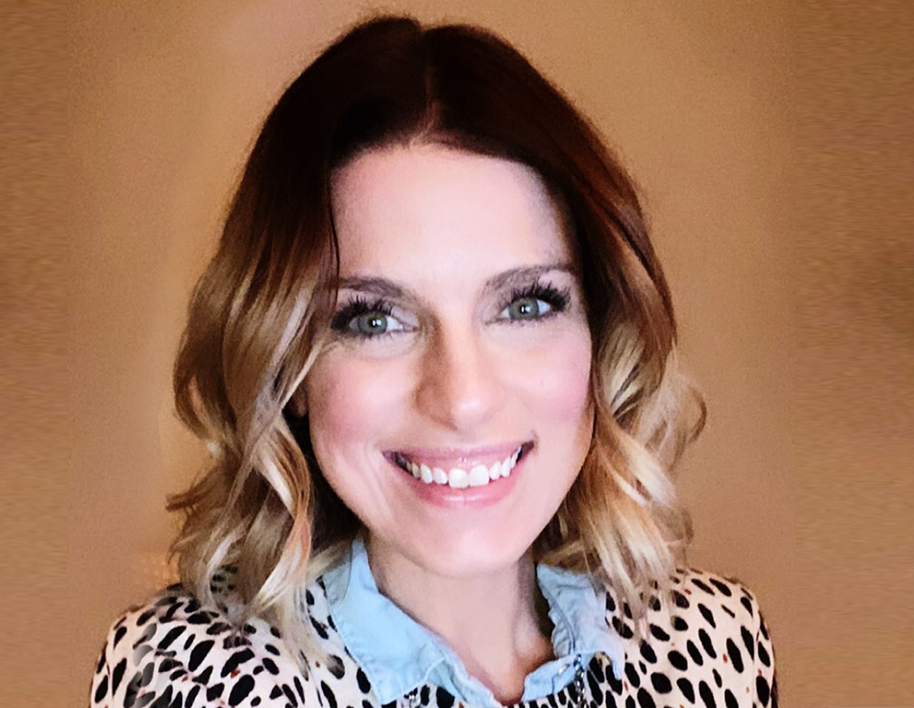 Jackie Bio: Jackie Hague is a professional people-person and enthusiastic hype woman, passionate about helping turbo-talent reach new heights. As a Director of Enterprise Leadership Development for CVS Health, she is accountable for the strategy and implementation of High-Potential leadership development programs that accelerate the advancement of top talent. She loves stages and spotlights: super-powers include facilitation, culture building, leadership development, and getting people excited. In another life, she would be a Radio City Rockette.
Jackie Bio: Jackie Hague is a professional people-person and enthusiastic hype woman, passionate about helping turbo-talent reach new heights. As a Director of Enterprise Leadership Development for CVS Health, she is accountable for the strategy and implementation of High-Potential leadership development programs that accelerate the advancement of top talent. She loves stages and spotlights: super-powers include facilitation, culture building, leadership development, and getting people excited. In another life, she would be a Radio City Rockette.
Any opinions expressed are solely their own and do not express the view of any organization.
”The most important thing for us to think about as leaders is sort of making sure that our team, especially our high performing high potential colleagues, the ones that we really want to invest in and routine over time that they see the path for themselves.”
Jackie Hague
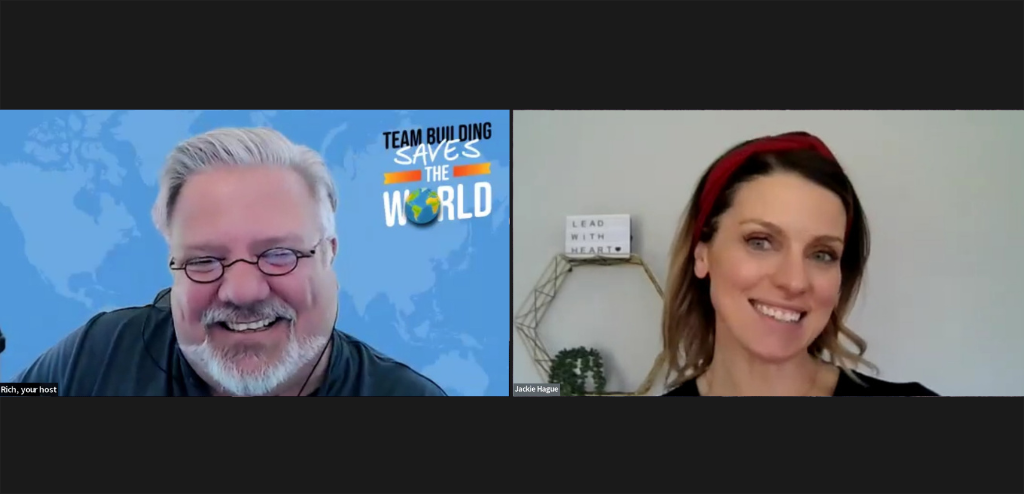
More great podcast episodes.
Season 6 | Episode 18
That’s a Wrap!
Season 6 | Episode 17
Work-Life Integration
Season 6 | Episode 16
Laughing it Off
Season 6 | Episode 15
Corporate Volunteerism in Action
Season 6 | Episode 14
Collaborative Play at Work
Season 6 | Episode 13
The Science of Supportive Workplaces
Season 6 | Episode 12
The Power of Being Present
Season 6 | Episode 11
The Age Advantage
